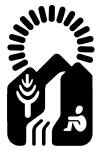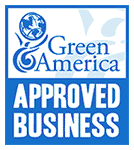Bottled Water: Fraudulent Claims!
Abid Aslam, OneWorld US
WASHINGTON, D.C., Feb 4 (OneWorld) - Water, water everywhere and we are duped into buying it bottled.
Consumers spend a collective $100 billion every year on bottled water in the belief--often mistaken, as it happens--that this is better for us than what flows from our taps, according to environmental think tank the Earth Policy Institute (EPI).
For a fraction of that sum, everyone on the planet could have safe drinking water and proper sanitation, the Washington, D.C.-based organization said this week.
Members of the United Nations have agreed to halve the proportion of people who lack reliable and lasting access to safe drinking water by the year 2015. To meet this goal, they would have to double the $15 billion spent every year on water supply and sanitation.
''While this amount may seem large, it pales in comparison to the estimated $100 billion spent each year on bottled water,'' said EPI researcher Emily Arnold.
''There is no question that clean, affordable drinking water is essential to the health of our global community,'' Arnold said. ''But bottled water is not the answer in the developed world, nor does it solve problems for the 1.1 billion people who lack a secure water supply. Improving and expanding existing water treatment and sanitation systems is more likely to provide safe and sustainable sources of water over the long term.''
Worldwide, bottled water consumption surged to 154 billion liters (41 billion gallons) in 2004, up 57 percent from 98 billion liters in 1999, EPI said in a written analysis citing industry data.
By one view, the consequences for the planet and for consumers' purses are horrifying.
''Even in areas where tap water is safe to drink, demand for bottled water is increasing--producing unnecessary garbage and consuming vast quantities of energy,'' said Arnold. ''Although in the industrial world bottled water is often no healthier than tap water, it can cost up to 10,000 times more.''
At up to $2.50 per liter ($10 per gallon), bottled water costs more than gasoline in the United States.
A close look at the multibillion-dollar bottled water industry renewed Arnold's affection for the faucet. Tap water comes to us through an energy-efficient infrastructure whereas bottled water must be transported long distances--and nearly one-fourth of it across national borders--by boat, train, airplane, and truck. This ''involves burning massive quantities of fossil fuels,'' Arnold said.
By way of example, in 2004 alone, a Helsinki company shipped 1.4 million bottles of Finnish tap water 4,300 kilometers (2,700 miles) to Saudi Arabia. And although 94 percent of the bottled water sold in the United States is produced domestically, some Americans import water shipped some 9,000 kilometers from Fiji and other faraway places to satisfy demand for what Arnold termed ''chic and exotic bottled water.''
More fossil fuels are used in packaging the water. Most water bottles are made with polyethylene terephthalate, a plastic derived from crude oil. ''Making bottles to meet Americans' demand for bottled water requires more than 1.5 million barrels of oil annually, enough to fuel some 100,000 U.S. cars for a year,'' Arnold said.
Worldwide, some 2.7 million tons of plastic are used to bottle water each year.
Once it has been emptied, the bottle must be dumped. According to the Container Recycling Institute, 86 percent of plastic water bottles used in the United States become garbage or litter. Incinerating used bottles produces toxic byproducts such as chlorine gas and ash containing heavy metals tied to a host of human and animal health problems. Buried water bottles can take up to 1,000 years to biodegrade.
Of the bottles deposited for recycling in 2004, the United States exported roughly 40 percent to destinations as far away as China--meaning that even more fossil fuels were burned in the process.
Meanwhile, communities from near which the water came in the first place risk running dry.
More than 50 Indian villages have complained of water shortages after bottlers began extracting water for sale under Coca-Cola Co.'s Dasani label, EPI said.
''Similar problems have been reported in Texas and in the Great Lakes region of North America, where farmers, fishers, and others who depend on water for their livelihoods are suffering from concentrated water extraction as water tables drop quickly,'' ''Arnold said.
All this, because many consumers associate bottled water with healthy living.
More fool us.
''Bottled water is not guaranteed to be any healthier than tap water. In fact, roughly 40 percent of bottled water begins as tap water; often the only difference is added minerals that have no marked health benefit,'' EPI said.
France's Senate, it added, ''even advises people who drink bottled mineral water to change brands frequently because the added minerals are helpful in small amounts but may be dangerous in higher doses.''
To be sure, many municipal water systems have run afoul of government water quality standards--driving up demand for bottled water as a result. But according to the study, ''in a number of places, including Europe and the United States, there are more regulations governing the quality of tap water than bottled water.''
The U.S. EPA sets more stringent quality standards for tap water than does the FDA for the bottled stuff, it added.
Americans drank 26 billion liters of bottled water in 2004, or roughly one eight-ounce glass per person every day. Mexico had the second highest consumption, at 18 billion liters. China and Brazil followed, at close to 12 billion liters each. Italy and Germany ranked fifth and sixth in consumption, downing just over 10 billion liters of bottled water each.
Italians drank the most bottled water per person, at nearly 184 liters in 2004--more than two glasses per day. Mexico and the United Arab Emirates consumed 169 and 164 liters per person. Belgium and France followed, knocking back almost 145 liters annually. Spain ranked sixth, with 137 liters swallowed each year.
Some of the fastest growth in bottled water consumption is taking place in poor countries, however.
With consumption per person increasing by 44-50 percent between 1999 and 2004, Lebanon and Mexico had among the fastest growth rates of the top 15 per-capita guzzlers, EPI said.
Indian and Chinese people drank far less individually but collectively, the world's two most populous countries appear to have been on a bender. India swigged three times as much bottled water in 2004 as it did in 1999 and China, more than twice as much.
If individual Chinese consumers drank one-fourth the bottled water downed by the average American, EPI said, China would springboard over the United States and become the world's largest consumer.
***
Return to the Resource Library
Note: You can see the bottled water I recommend on my links page. Unfortunately what this guy says is mostly true - if you drink bottled water you're normally being duped. You're far better off to treat your tap water to remove contaminants. Tap water is heavily regulated and while it is definitely unhealthy left untreated you can correct that.
You may return to my water purification products and services here:
Whole House Water Purification Systems

James P McMahon Ecologist
"What's in YOUR Water?"
 ©
©
Sweetwater, LLC
Return to:
Home Water Purification Systems
* * *
Home Water Purification Systems Air Purification Consultations Buy my Ultimate Guide Resource Library
Water Purifiers Arsenic Iron Removal Commercial Healing Waters Rainwater
Whole House Water Purification Water Testing Healthy Links Biography Well Water Rave Reviews



